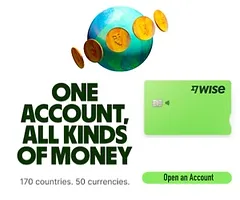BANK REWARDS PROGRAMMES IN UAE – HOW THEY WORK AND WHY BANKS OFFER THEM
In the UAE, banks lure customers with points, cashback, and miles, turning everyday spending into flights, vouchers, or luxury perks. From Emirates NBD’s Skywards to Mashreq’s Salaam, these schemes are tightly regulated by the Central Bank and designed to push digital payments while keeping you loyal. But rewards aren’t free; they’re funded through merchant fees, interest rates, and partnerships with airlines and retailers. The trick is using cards smartly—paying balances monthly and choosing the right programme for your lifestyle. Done right, you can save thousands of dirhams annually while avoiding debt traps.

How bank rewards work in the UAE
In the United Arab Emirates, bank points or rewards programmes operate as loyalty schemes that encourage cardholders to ditch cash and spend more digitally. Whether you’re paying for groceries at Carrefour, booking flights through Emirates, or ordering from Talabat, every swipe or tap of your card can accumulate points, cashback, or miles. These rewards can then be redeemed for a variety of perks—ranging from free flights and hotel stays to vouchers, electronics, and even direct bill credits.
The Central Bank of the UAE regulates these programmes, ensuring fairness and transparency, particularly because millions of credit cards are in circulation across the country. Data shows that digital transactions are rising steadily—up 30% in recent years, particularly in Dubai and Abu Dhabi. This growth fuels the popularity of rewards as banks compete to attract both locals and the large expat population that drives much of the UAE’s financial ecosystem.
Types of rewards offered
Points programmes: Earn points per dirham spent, redeemable for vouchers, electronics, or travel.
Air miles: Popular with frequent flyers through Emirates Skywards or Etihad Guest.
Cashback: Straightforward money-back on eligible spending, often credited to your account.
Lifestyle perks: Discounts on dining, cinemas, airport lounges, or shopping at malls like Dubai Mall.
Sharia-compliant benefits: Charitable donations or ethical cashback options from Islamic banks.
These structures are designed to lock customers in and reward them for consistent card use. However, the real benefit depends on how responsibly you manage your balance. High interest rates—sometimes exceeding 36% annually—can quickly cancel out any rewards if you don’t pay in full each month.
Major banks and their programmes
The UAE is home to a diverse banking sector, and almost every major bank has its own flavour of rewards programme. These range from premium travel miles to cashback schemes aimed at everyday spending. Choosing the right one depends on your lifestyle, whether you’re a jet-setter, a frequent diner, or simply looking to save on groceries.
Leading UAE banks with rewards
Emirates NBD: Known for Skywards (1–2 miles per AED 3.67) and lifestyle tie-ins like U By Emaar.
ADCB: TouchPoints programme offers 1–5 points per AED 1, redeemable instantly at partners like Cleartrip or Sharaf DG.
First Abu Dhabi Bank (FAB): Runs FAB Rewards and SHARE, with Etihad Guest miles and lucrative sign-up bonuses.
Mashreq: Salaam Rewards, offering 1–5 points per AED 1 and extra bonuses on loans and deposits.
Dubai Islamic Bank (DIB): Wala’a Rewards, offering travel perks and Sharia-compliant donation options.
HSBC: Rewards on Premier cards, with strong overseas earning rates.
Standard Chartered: Rewards360, earning up to 10x points on international spending.
RAKBANK: Air Rewards and cashback perks, popular with budget-conscious expats.
Beyond these, smaller banks like Sharjah Islamic Bank, Ajman Bank, and the National Bank of Fujairah offer simpler cashback programmes. While they lack the glamour of travel miles, they provide straightforward, transparent rewards better suited for modest spending habits.
Expats often gravitate toward banks like Emirates NBD or FAB for the international perks, while locals sometimes prefer Sharia-compliant options from Islamic banks. Across the board, rewards programmes have become a central battleground for customer loyalty, often influencing which bank people choose.
Why banks give rewards
At first glance, rewards may look like generosity, but banks are not charities. They fund these perks strategically to drive revenue. Each time you swipe your card, merchants pay a fee—known as interchange—typically ranging from 0.5% to 2%. A portion of this fee goes directly into funding your rewards. Banks also rely heavily on interest from unpaid balances, which can hit 3% monthly, offsetting the cost of giving away points or miles.
How rewards are funded
Merchant fees: Each purchase generates revenue that subsidises reward payouts.
Interest charges: Customers who don’t clear balances pay high interest, funding perks for others.
Partnerships: Airlines like Emirates or retailers like Carrefour pay banks to attract loyal customers.
Data monetisation: Banks sell anonymised spending data to marketers for targeted advertising.
Experts from the University of Dubai estimate that these programmes increase card use by 25–30%, leading to higher transaction volumes and larger profits. The system is designed so that while you’re collecting points toward a free Maldives getaway, the banks are earning significantly more on the back end.
The key takeaway is balance. If you use rewards wisely, pay off your balances, and select a programme aligned with your lifestyle, you can extract serious value. Mismanage it, however, and you’re simply funding the bank’s profit machine while gaining little in return.








